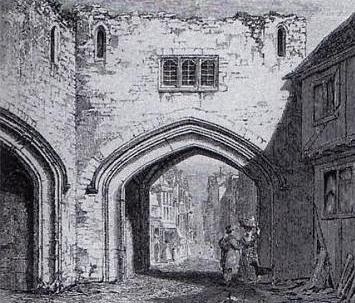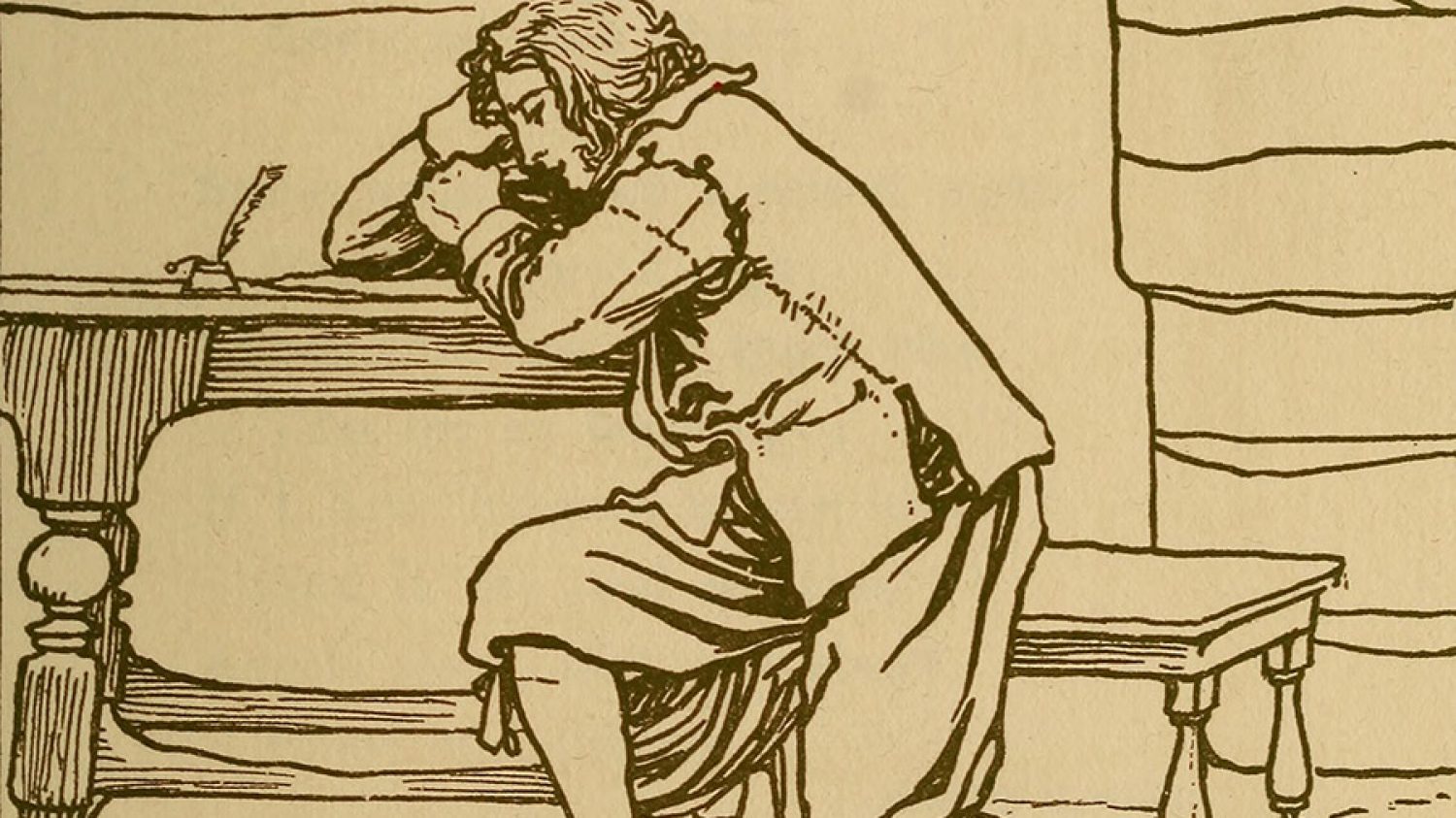To Althea, from Prison by Richard Lovelace
When Love with unconfinèd wings
Hovers within my Gates,
And my divine Althea brings
To whisper at the Grates;
When I lie tangled in her hair,
And fettered to her eye,
The Gods that wanton in the Air,
Know no such Liberty.
When flowing Cups run swiftly round
With no allaying Thames,
Our careless heads with Roses bound,
Our hearts with Loyal Flames;
When thirsty grief in Wine we steep,
When Healths and draughts go free,
Fishes that tipple in the Deep
Know no such Liberty.
When (like committed linnets) I
With shriller throat shall sing
The sweetness, Mercy, Majesty,
And glories of my King;
When I shall voice aloud how good
He is, how Great should be,
Enlargèd Winds, that curl the Flood,
Know no such Liberty.
Stone Walls do not a Prison make,
Nor Iron bars a Cage;
Minds innocent and quiet take
That for an Hermitage.
If I have freedom in my Love,
And in my soul am free,
Angels alone that soar above,
Enjoy such Liberty.

The Gatehouse Prison in Westminster, London that was built in 1370 and torn down in 1776. The picture illustrates the prison in its final dreary decades during the 18th century.
17thC Cavalier poet, Richard Lovelace wrote this poem in 1642 when he was in prison at Gatehouse. He had led a group of men to grab and destroy a petition for the abolition of episcopal rule. When he got out of prison he fought for his King during the Civil War.
In the poem Lovelace examines the idea of imprisonment. Freedom, he argues paradoxically, comes from the body and soul, not from bars and locked doors. In prison, he insists, he can still protest on behalf of his King. In the first verse he imagines his lover, Althea, coming to him in his prison cell, with the suggestion that there they ‘wanton’ together. The second verse pictures a convivial celebration with friends, with toasts being drunk with great enjoyment. In the third stanza he pictures his own voice ringing out with a “shriller throat” than any caged bird, proclaiming the greatness of his King, while the final verse brings his theme to a climax with reminders that the human imagination is so strong it can overcome any situation. He might be in prison, but he is actually more free than anybody or anything else (birds, fish, winds) because he can re-imagine his situation. Prisons, or places of restriction, or bad things in life, can always be viewed in other ways. It’s a case of mind over matter!
Enjoy listening to To Althea, from Prison by Richard Lovelace (read by Tom O’Bedlam).
Share your thoughts on this famous poem by leaving a comment.
1897 publication: A Book of old English love songs by Mabie, Hamilton Wright, 1846-1916, ed; Edwards, George Wharton, 1859-1950, illus. contains an illustrated copy of this poem.
Comments are moderated, and will not appear until approved.


Barbara Wright
This was superb.
Susannah Fullerton
So glad you liked it. Many thanks for your nice comment Barbara.